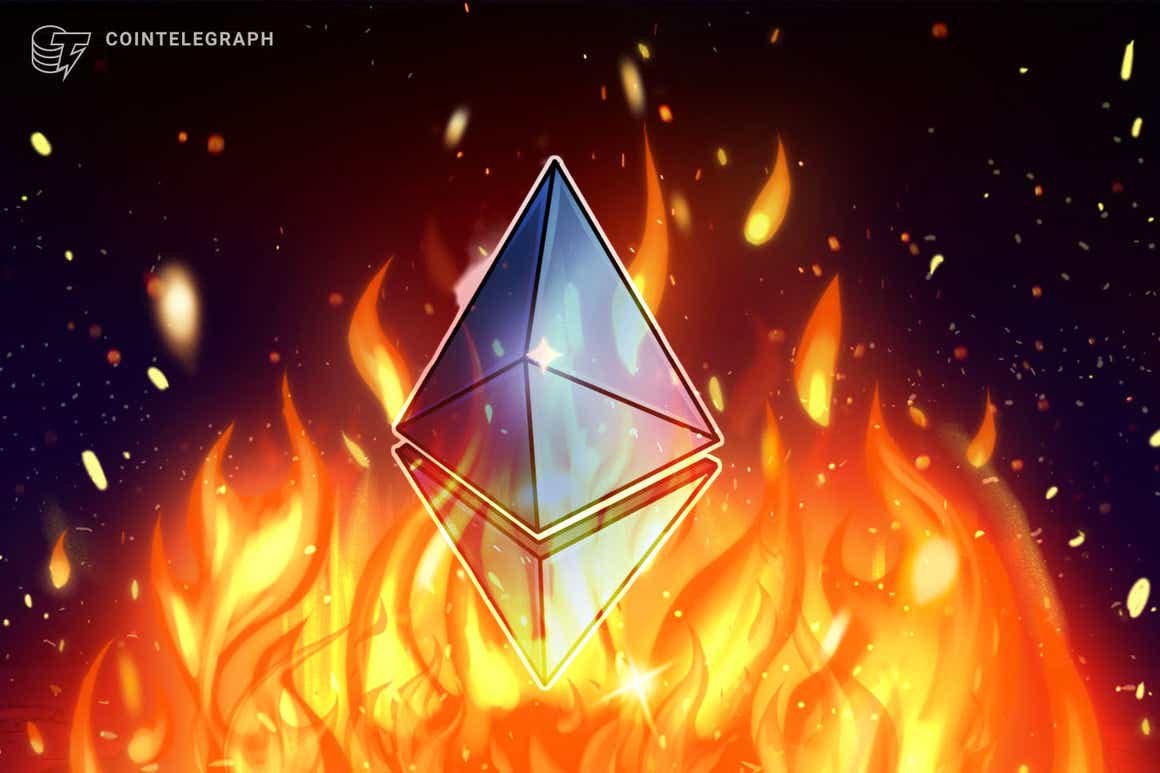
$1B worth of ETH burned in the past 30 days due to record high OpenSea NFT transactions
Despite the large burn value, the network is still inflationary until its PoS transition scheduled for Q2 or Q3.
According to blockchain data from Nansen Analytics on Tuesday, over $1.096 billion worth of Ethereum (ETH) has been burned in the past month. With the introduction of the EIP-1559 last August, a portion of fees is taken out of circulation for every transaction that occurs on the Ethereum blockchain. While sending and receiving ETH does not cost much, higher-level tasks, such as minting nonfungible tokens, or NFTs, via smart contracts, cost far more gas.
In January, the total volume of NFT transactions on OpenSea hit an all-time high of $3.5 billion. It currently ranks No.1 on a burn leaderboard compiled by Ultra Sound Money, with 65,778 ETH ($181.7 million) burned in the past 30 days. In second and third place were token burns from Ethereum transactions and factivity on decentralized exchange Uniswap (UNI), numbering 35,696 ETH ($98.6 million) and 24,223 ETH ($66.9 million), respectively.
However, Ethereum is still an inflationary blockchain network; the current issuance of 5.4 million ETH per year surpasses 3.5 million ETH burned. The supply of ETH will peak only after the removal of its proof-of-work mechanism via its transition to proof-of-stake, or PoS.
Once that happens, the total amount of new emissions will be less than that of token burns, resulting in a net deflationary network. The PoS transition, dubbed “the merge,” will occur in the second or third quarter of this year. Before that, however, the network’s total hash rate has still managed to reach a new all-time high. The Ethereum Foundation recently ditched the Eth 2.0 name in its rebrand. It is now called the consensus layer.
This content was originally published here.


